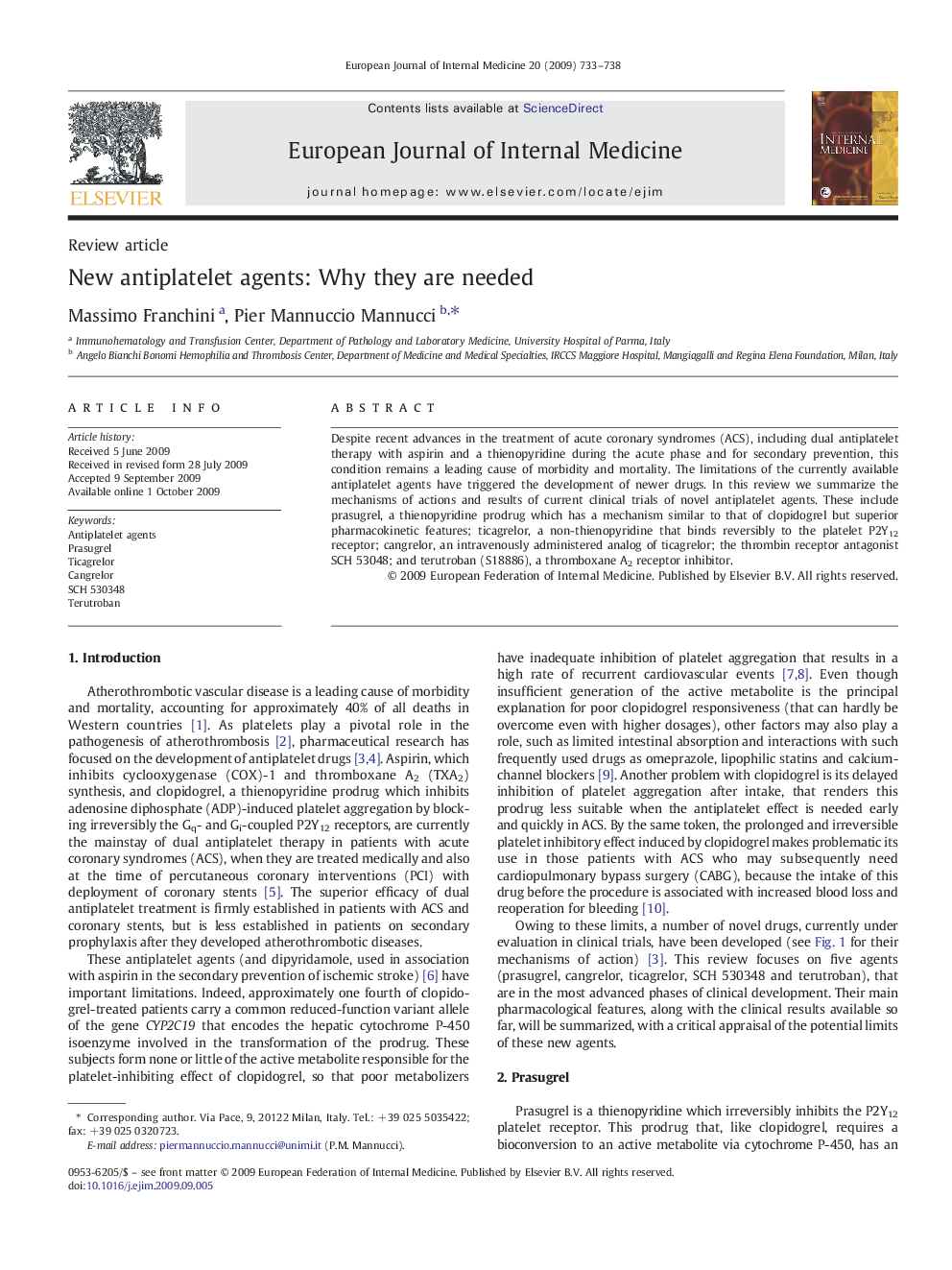| Article ID | Journal | Published Year | Pages | File Type |
|---|---|---|---|---|
| 3466758 | European Journal of Internal Medicine | 2009 | 6 Pages |
Despite recent advances in the treatment of acute coronary syndromes (ACS), including dual antiplatelet therapy with aspirin and a thienopyridine during the acute phase and for secondary prevention, this condition remains a leading cause of morbidity and mortality. The limitations of the currently available antiplatelet agents have triggered the development of newer drugs. In this review we summarize the mechanisms of actions and results of current clinical trials of novel antiplatelet agents. These include prasugrel, a thienopyridine prodrug which has a mechanism similar to that of clopidogrel but superior pharmacokinetic features; ticagrelor, a non-thienopyridine that binds reversibly to the platelet P2Y12 receptor; cangrelor, an intravenously administered analog of ticagrelor; the thrombin receptor antagonist SCH 53048; and terutroban (S18886), a thromboxane A2 receptor inhibitor.
